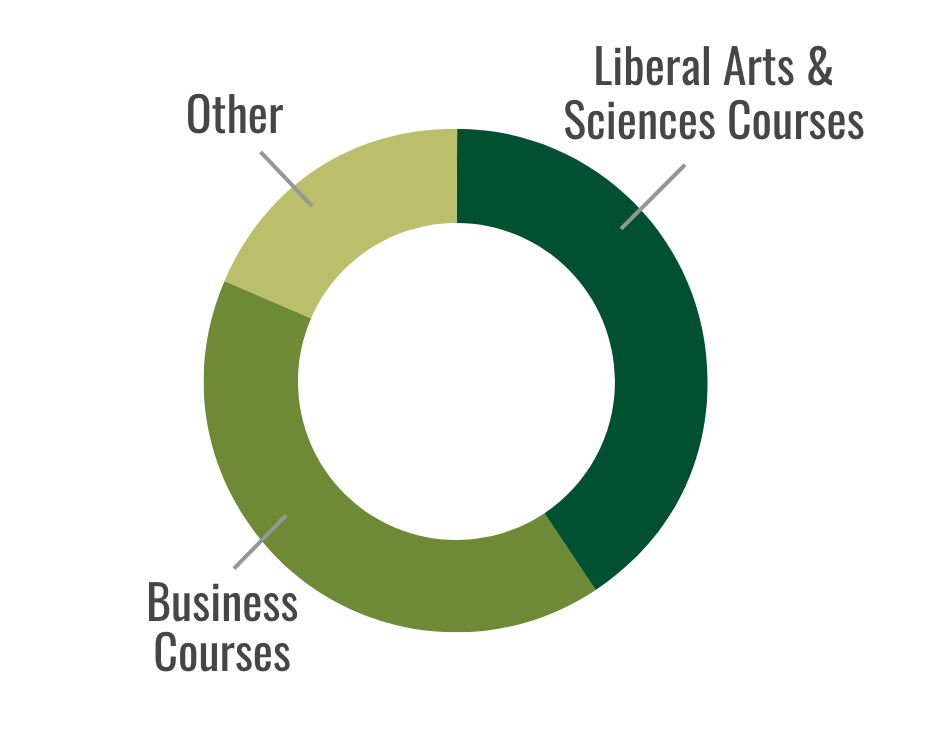is when you’ll begin to experience a full business school education, blended with the liberal arts and sciences

Balance of Courses
How our undergraduate business curriculum breaks downOur students take a blend of business classes and liberal arts and sciences courses, with six foundational classes in their first years, including FME. Their course blend then shifts depending on the concentration and electives a student chooses to pursue.







